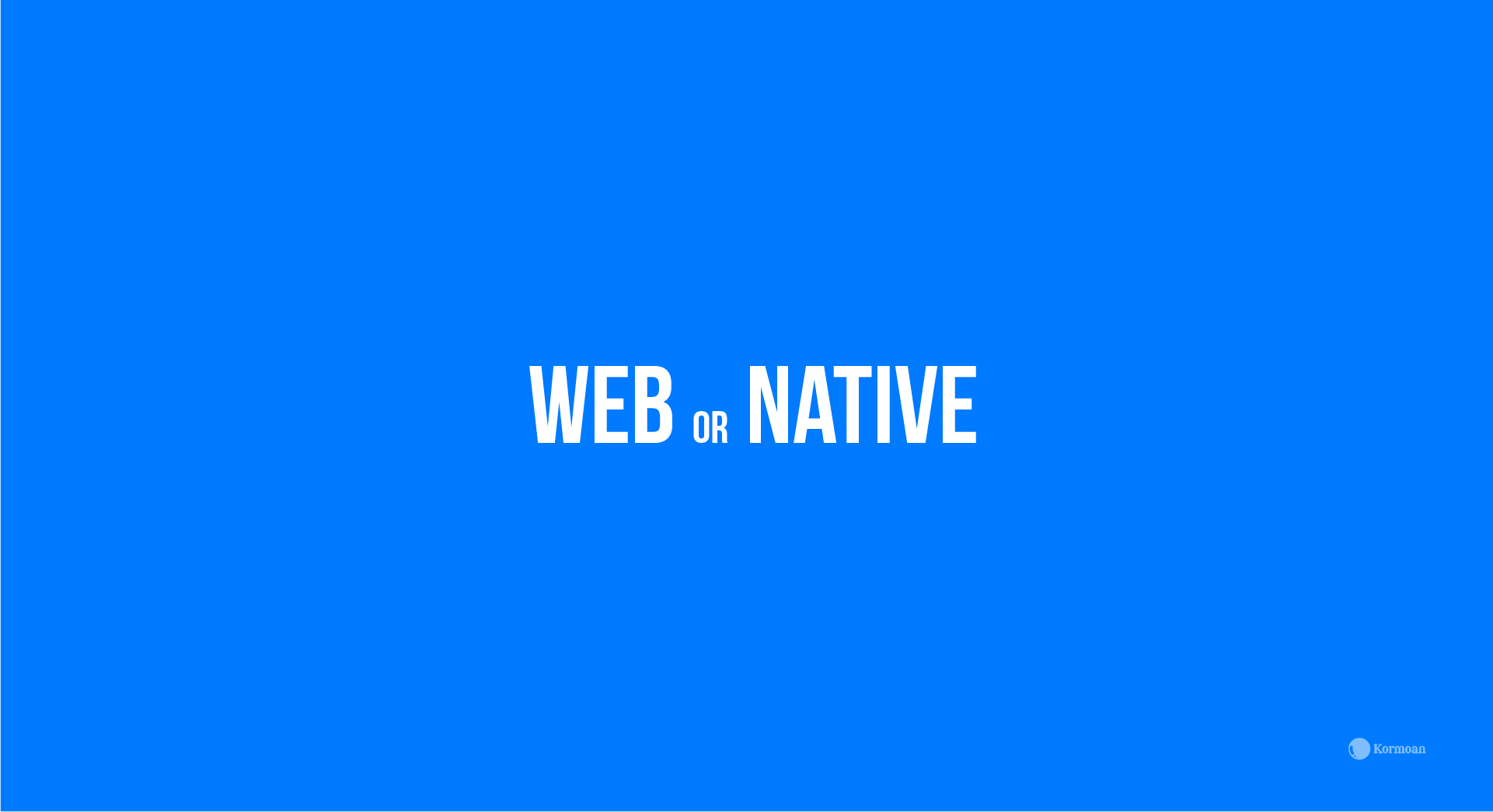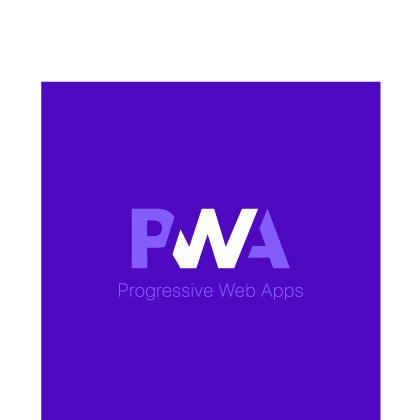
Many businesses are at the beginning of the new product journey and considering whether to go with a native mobile or web application. Delaying this decision can have serious implications; learn how to make the right choice here!
At Kormoan, we have noticed that decision-making can be difficult, especially if you are just starting.
When it comes to deciding between native apps and web apps, there are a few factors that you should consider. For businesses of all sizes that are building a new digital product from scratch, these factors can include:
What Is the Difference Between a Native Mobile App and a Web App?
Native mobile apps are built using the same programming language as the target platform—either Objective-C or Swift for iOS or Java for Android. These apps also require more time to be developed and downloaded to your device because they need to be uploaded to the respective app store and approved by an administrator. However, native mobile apps can have better performance and responsiveness and feel more like a “native” part of your phone or tablet’s operating system.
Web apps are a great option for all types of businesses, including B2B and any business where traditional desktop software isn’t appropriate. Web apps run on a web browser and can be accessed via an internet connection. With mobile compatibility at the forefront, you can design your app with a beautiful interface that works in your favor.
Native mobile apps offer an experience similar to their web applications, except they can be more focused on user flow and are designed specifically for the device that they run on. User interfaces can be built natively, which means there’s no need for fancy tricks or responsive layouts, and your users get a richer experience right out of the box.
Plus, native mobile apps and web apps are two types of programs used to access information and services. Native applications can use the device’s built-in hardware, including its camGPSS system. Web apps run on a website; they don’t need an internet connection to work.
As you can see, native and web apps each have their specialties, making them attractive choices for some businesses. If you’re not sure which one is right for your business, don’t hesitate to reach out!
How do your business goals influence the solution?
Whether to create a native mobile app or a web app depends on the type of your digital offering. In addition to technological factors, a lot depends on the answers to the following queries:
- How should the product meet the demands of the users?
- When and where will it be put to use?
- How frequently is the data updated?
- What kind of data is being used?
Your decision-making process will be framed by how you respond to these questions, but there may be other factors to take into account even if they are not directly related to the native vs. web question.
Depending on the market you’re targeting, some examples might be your consumers’ favorite device or the fact that you’re developing a new approach to expand your services and open up a new channel of acquisition.
Let’s take a look at the four situations we identified to help you reach an informed conclusion.
Native functionalities
Browser access to different device functionalities can vary depending on the browser or the operating system, such as location or cameraFor your app to function at its full potential, we utilize a native Android application and system resources to provide the best experience. A browser can be a good way to access a device, but it has its limitations. If you want to access the functionality of some elements, like your camera or NFC, you’ll need to use native technology.
The first decision to make when developing your app is whether you need to use native functionalities. Native Mobile is the way to go if your business plan calls for utilizing device system features or hardware. Payment apps that need access to NFC technology on a smartphone or those that only require biometric verification for higher security are excellent examples of this.
If your program does not require any native functionality, the decision to go native on mobile or online might be influenced by other factors.
Mobility
The location of your app’s primary use might tip the scale in a particular direction. Recognize your customers. Is there any movement?
If you anticipate that your customers will mostly use the app at the workplace—for example, a business management software—they will most likely use it while working on their computers. Given that your primary platform will likely be desktop-focused, you can only offer limited functionality optimized for mobile devices.
The need for your product may arise in a dynamic situation, such as using it to find a date or get a ride home, in which case your users will need a native mobile app to have it readily available at all times. In the alternative, if this is the case, they will need to have the app readily available at all times.
Data Accessibility
A company that demands regular access to new information on your app is not the same as one that allows customers to go entirely off-grid while still keeping the app fully functional.
There is no obvious winner between native and online platforms if your software requires continual connectivity to update information based on server availability or changes, as is the case for a marketplace. You must consider other deciding elements.
Native applications, on the other hand, offer a simpler method for saving such data on the device’s local storage, enabling users to use the app’s features even when their devices are in airplane mode or have restricted internet connectivity.
Informational Format
The sort of information that should be accessible to your users on a single screen can affect their decision, even if the presented information can be greatly influenced by the design and user experience of your app.
A web app makes more sense if you need to show your consumers a lot of information or if you want them to be able to interact with it on the app since it enables the presentation of information on a larger screen. These scenarios include dashboards for people, dashboards for data (PowerBI, Datadog), and canvas-heavy apps (Figma, Miro, Google Slides), among others (any CRM app).
Mobile applications precisely fill that demand without sacrificing the user experience when you have lesser quantities of information to show and edit or if the data can be better organized and doesn’t need to be available in a single glance.
Conclusion: The needs determine the appropriate response
Depending on the kind of software you’ll be releasing to the market and the functionality it has to have, both platforms offer advantages and disadvantages. With any luck, this post will assist you in selecting the best platform and technology for your forthcoming project or digital good. We can assist you with developing any app concept you may have, whether it be for a web or mobile platform.











